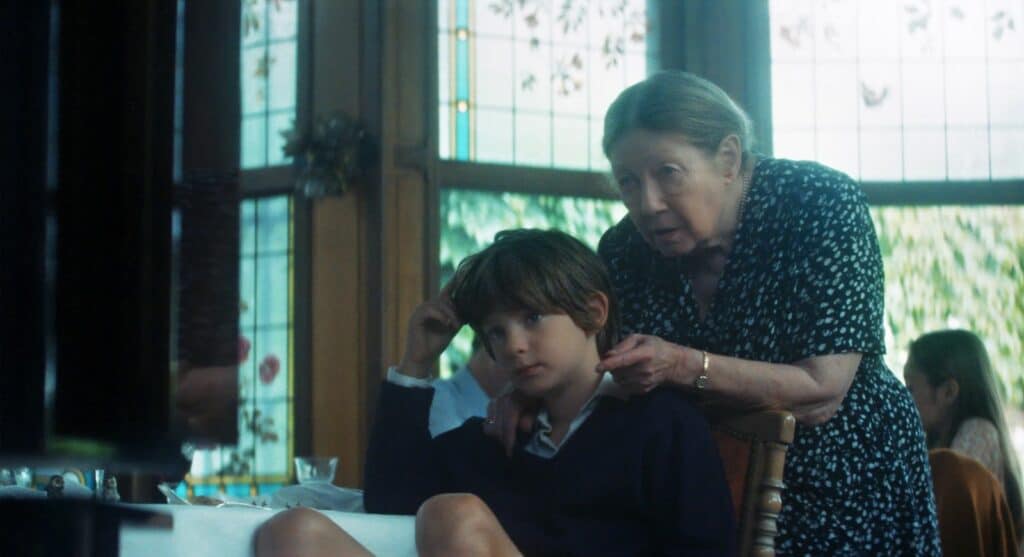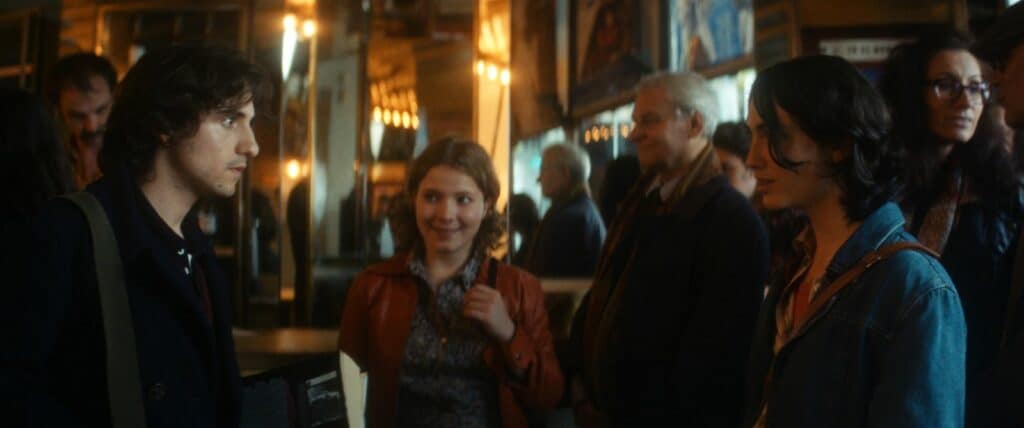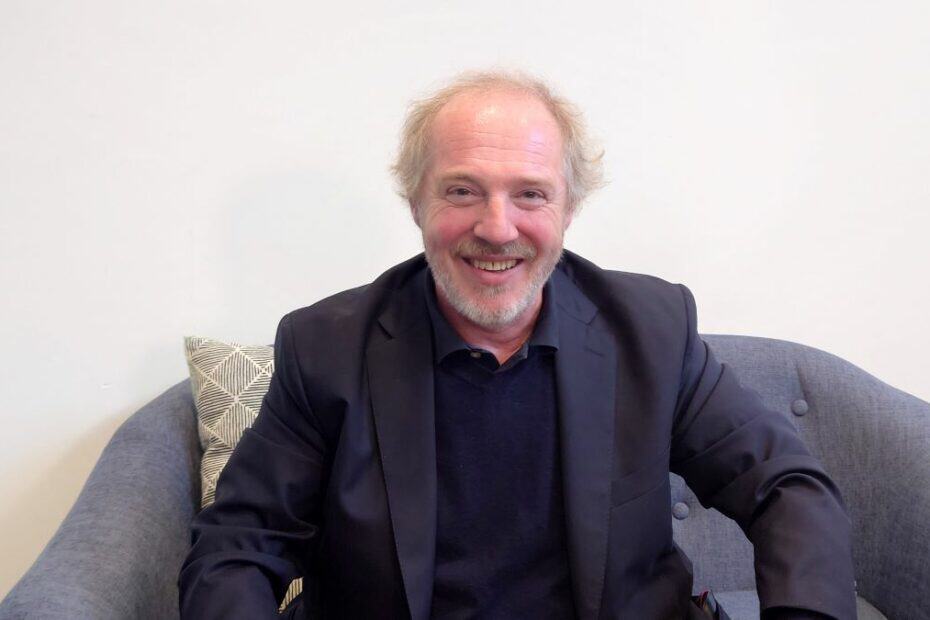The latest film by Arnaud Desplechin, Spectateurs! (Filmlovers!) was screened in the Special Screenings section of this year’s Cannes Film Festival. I was able to interview the director about the film and its origin, and I also managed to discuss a mutual favourite director.
What was the reason to make this film now, in this stage of your life and career?
Arnaud Desplechin: First of all, it was a proposition of the producer, Charles Gilibert, because he was a reader of this obscure American philosopher, Stanley Cavell and knew that I was a big fan and a friend of his. So, he proposed to me, “Why don’t you make a documentary about cinema theatres?” My answer was very fast. I said, never because first, I’m not able to do a documentary. What I’m able to do is fiction. I can tell the story of a young kid becoming a spectator, and through this coming-of-age movie, I can escape here and there to make an essay film.

It is a mixture of documentary and fiction. How did you manage that? It’s the first time you have made that kind of movie.
A.D: I was obsessed with one thing during the writing process, which was not to be boring. When I was writing the essay section, I said to myself, “No, it’s too long. You have to have a fictional scene.” The film is a maze, in a way. I didn’t want the spectators to be lost in the film. That’s why I added these portraits at the beginning of each fiction scene, with the character introducing himself and looking into the camera. After that, I realized when I showed the first cut to the producer, he told me something really funny. He said that the mixture between the essay and the fiction does work.
Only then did I realise that he didn’t believe it during the whole preps, you know. And I think if it works, it’s also because of the score by Grégoire Hetzel. The music conducts you through all these emotions, intellectual, simple, just sensual, whatever. I think the journey of the music was so important in the storytelling.
The Disapproving Swede: Sometimes, it might be rude to mention references to other films, but in this case, you have to. Les quatre cents coups is obvious, but as a Swede, the most amusing scene for me was when Paul 1 lies about his age to get into a screening of Cries and Whispers of all films. Is that part fact or fiction?
A.D: That is true. That is how I saw the film.
TDS: Usually, when young people lie about their age, they want to see something more violent and cool. Not an arthouse film like that.
A.D: Bergman’s movies can happen to really young kids. I remember when I saw my son looking at Persona when he was six years old. He arrived late at night, and we were watching it. I was saying, “It’s stupid. It’s an adult film. You don’t have to look at it.” Who cares? He was looking at the power of the images. I had the same feeling when I discovered Cries and Whispers.
TSD: So, you were 11 or 12 years old?
A.D: Yes, I saw it, and I was so shocked about the violence between men and women; I thought, is it that to be an adult? It’s a nightmare. I was so attracted by the power of the images and by the face of Liv Ullmann. Now, I was so happy to be able to do that shot in the film, starting on the screen, moving like that, crossing the entire theatre and turning around Milos Machado-Graner. You can’t do it in real life, but I could do it with a crane.

Is there any connection to the film Room 666 by Wim Wenders?
A.D: Sure, because in that film there is a worry about the future of cinema. Considering my age, I’ve heard for a long time about the end of cinema, and that cinema is dead. Godard said it, and Serge Daney, as well, but cinema is still around. Maybe Wenders worries more since he was closer to Daney, I don’t know.
TDS: If cinema is alive, where will it be alive? Do you think the screening rooms and the cinemas will survive? Your film is basically about cinemas.
A.D: It will survive but in a different way. Maybe it won’t be the most popular, big deal! You will have other forms of entertainment and other platforms. Cinemas will still be around. You can’t predict those things. Who would have known how popular vinyl would become again? Look at a film like Challengers. It is a Netflix film, but it was released in cinemas and became a massive success. It is still important for people to gather in one place and for people to look at images that are bigger than themselves.
TDS: Do you think festivals will be more important in the future, and that will be the places where people watch films together?
A.D: Yes, film festivals will be more important. I also think that festivals, in a way, have taken over the role of film magazines. Before the internet, those magazines had a deep influence: Cahiers du Cinéma, Positif, Premiere, Studio, etc. They were running the show. Now, everyone can state their opinions, and critics have to prove why their opinion would be more valuable than anyone else’s on the internet. Today, it is the festivals [and their programmers] that point out which films to explore. They are the ones driving the audience towards the future.
The interview with Arnaud Desplechin goes Alain Resnais
TDS: You mentioned the concept of time in the film, and that made me think of one of my favourite directors. He’s not in the film, but I want to ask about him, Alain Resnais, because I know he means a lot to you as well. Could you talk a bit about his influence on you?
A.D: Enormous! For various reasons. I was born in Roubaix, close to Belgium. I was a big fan of Jean Ray, the writer of the Harry Dickson. I had the book with the photos that were taken in London and Belgium of Resnais when he was preparing for his Harry Dickson project. He had this involvement that the New Wave didn’t have with the political involvement. He made a film about the Algerian situation [La guerre est finie 1966].
I would like to mention a thing that I love about time, pure time because it’s one of the great themes in Resnais’ works, like Providence and others. There is a film that is still underrated by a Belgian writer 2, Jaques Sternberg. Je t’aime, je t’aime (1968). Here we have the pure magic of cinema in this moment of time, which can repeat and repeat and repeat, forever and ever.
TDS: I think time is catching up with this film now, no pun intended, and more people appreciate it now. To continue the talk about influences, would it be fair to say that the opening credits for Comment je me suis disputé… (ma vie sexuelle) are slightly influenced by the opening credits of Muriel ou le temps d’un retour?
A.D: (Laughing) I see what you mean.


